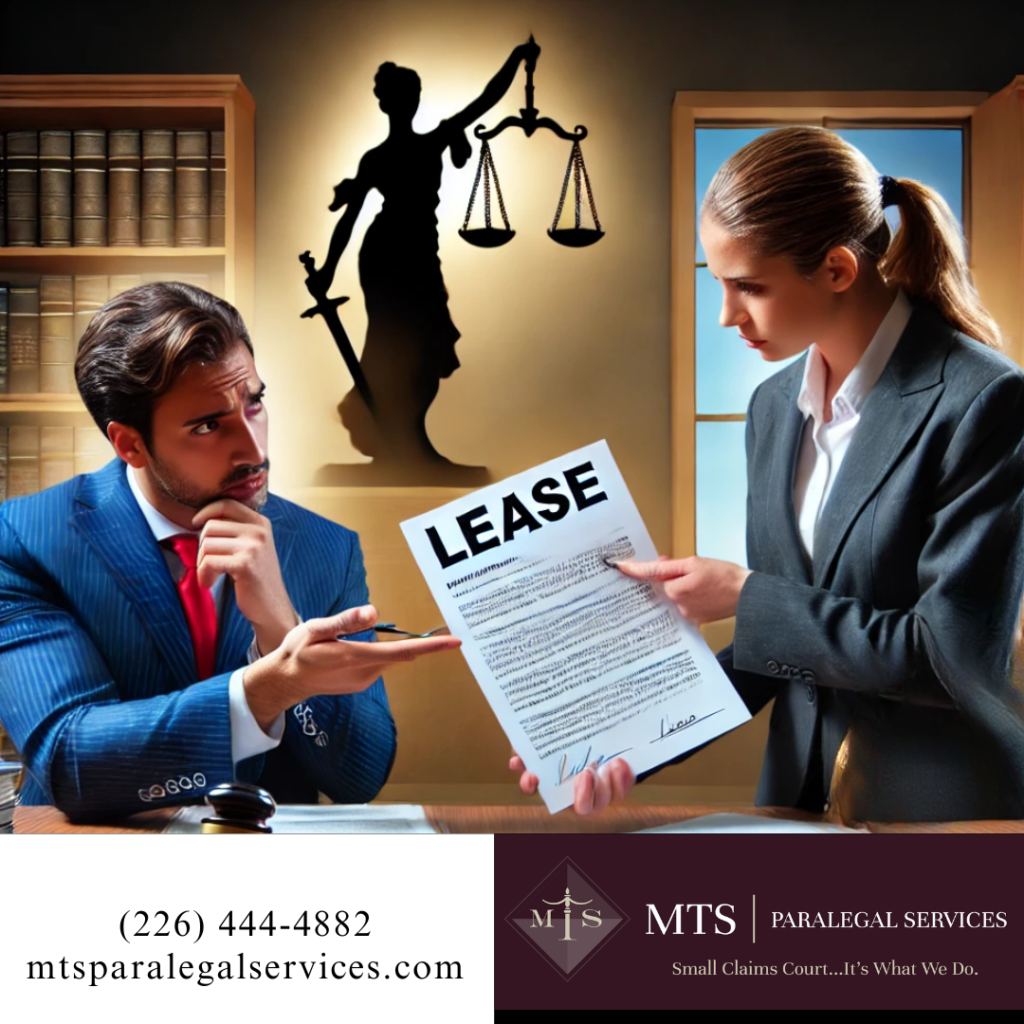
Challenging a Defective Lease Agreement in Ontario: When It’s Invalid
The terms of lease play a crucial role in outlining the legal obligations of both landlords and tenants in Ontario. When a lease agreement is properly drafted, it serves as a clear guide for the relationship between both parties. However, not every lease is created equally, and there are instances when a lease can be considered defective or invalid. This can have significant legal consequences for either the tenant or the landlord. It’s essential to understand when a lease might be challenged due to defects or inconsistencies in the terms of the lease. For those facing such issues, knowing how to take action is key to protecting their legal rights.
What Makes a Lease Agreement Defective?
A lease agreement is deemed defective when it fails to meet the legal standards set by Ontario’s Residential Tenancies Act, 2006 (RTA) or includes unlawful clauses. Several factors can render the terms of lease invalid. For instance, since April 30, 2018, Ontario requires landlords to use a specific standard lease form for most residential rental agreements. If this form is not used, or if essential sections of the lease are missing, the entire agreement may be challenged. Additionally, a lease agreement that includes clauses which attempt to override the tenant’s rights under the RTA is also defective. For example, any attempt to force a tenant to waive their right to essential services, like heat or water, is unlawful and void. Understanding these nuances is vital for anyone signing or reviewing the terms of lease in Ontario.
Key Issues in Defective Lease Agreements
The most common problems found in defective lease agreements often involve the inclusion of unlawful terms or vague and misleading language. The terms of lease must be clear, concise, and in full compliance with Ontario’s legal requirements. If any clauses attempt to restrict a tenant’s right to privacy, prohibit legal actions, or enforce unlawful rent increases, those terms of lease are invalid. Ambiguity in the agreement, such as unclear language regarding utility payments, rent increase schedules, or maintenance responsibilities, can also lead to disputes. Such ambiguities can cause confusion, particularly for tenants who may not have full knowledge of their rights. In these situations, the tenant can challenge the lease and may even have the legal right to break it without penalties. The clarity and legality of the terms of lease are critical in maintaining a smooth landlord-tenant relationship.
When a Tenant Can Challenge the Terms of Lease
In Ontario, tenants have several legal rights when it comes to challenging a defective lease. One of the most common scenarios is when a tenant faces an unlawful rent increase. Under the terms of lease, landlords must follow strict rent control guidelines. Any rent increase that exceeds the government’s annual rent guideline or does not provide the tenant with 90 days’ written notice can be challenged and potentially voided. Another common issue involves the breach of basic tenancy rights, such as the right to quiet enjoyment of the property. If the terms of lease fail to respect the tenant’s rights or misrepresent critical facts about the rental unit (such as available amenities or the condition of the property), the tenant has legal grounds to challenge the agreement. Challenging the terms of lease can be a complex process, but it is often necessary to protect the tenant’s rights.
Steps to Challenge a Defective Lease Agreement
If a tenant believes the terms of lease are defective, there are several steps to follow in order to challenge it. First, it’s important to carefully review the lease and identify any clauses that may violate the law or are ambiguous. Highlighting unlawful terms or unclear language will help support the case. Next, it’s crucial to document these concerns in writing. This includes keeping detailed notes about any disputes that arise regarding the terms of lease and maintaining communication records with the landlord. If the tenant is unable to resolve the issue directly with the landlord, the next step is to file a complaint with the Landlord and Tenant Board (LTB). The LTB is the regulatory body in Ontario that handles disputes related to rental agreements. It will assess whether the terms of lease are defective and determine the appropriate resolution. Tenants should also consider seeking legal advice, as challenging a lease can be a daunting process without proper legal representation.
Why Contact MTS Paralegal Services
If the terms of lease seem defective or if a tenant or landlord is unsure about the legality of certain clauses, it’s important to seek professional assistance. Tim at MTS Paralegal Services specializes in tenant-landlord disputes and has extensive experience dealing with defective leases in Ontario. Tim can help tenants understand their rights under the Residential Tenancies Act and assist landlords in ensuring their agreements are fully compliant with the law.
From challenging unlawful rent increases to addressing vague or unlawful terms of lease, Tim offers valuable expertise in navigating the legal landscape. If you’re facing issues with your lease, contact Tim at MTS Paralegal Services today. Protect your rights and ensure your lease agreement is fair and legal.
This content does not constitute legal advice. For up-to-date guidance or legal advice specific to your situation, please contact MTS Paralegal Services Professional Corporation or call (226) 444-4882.
